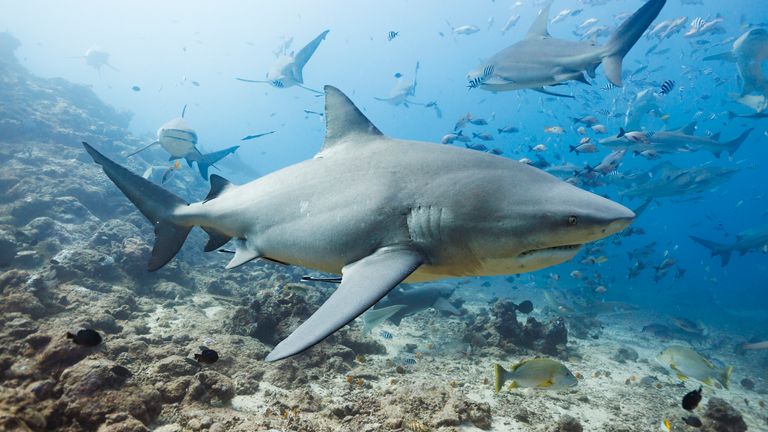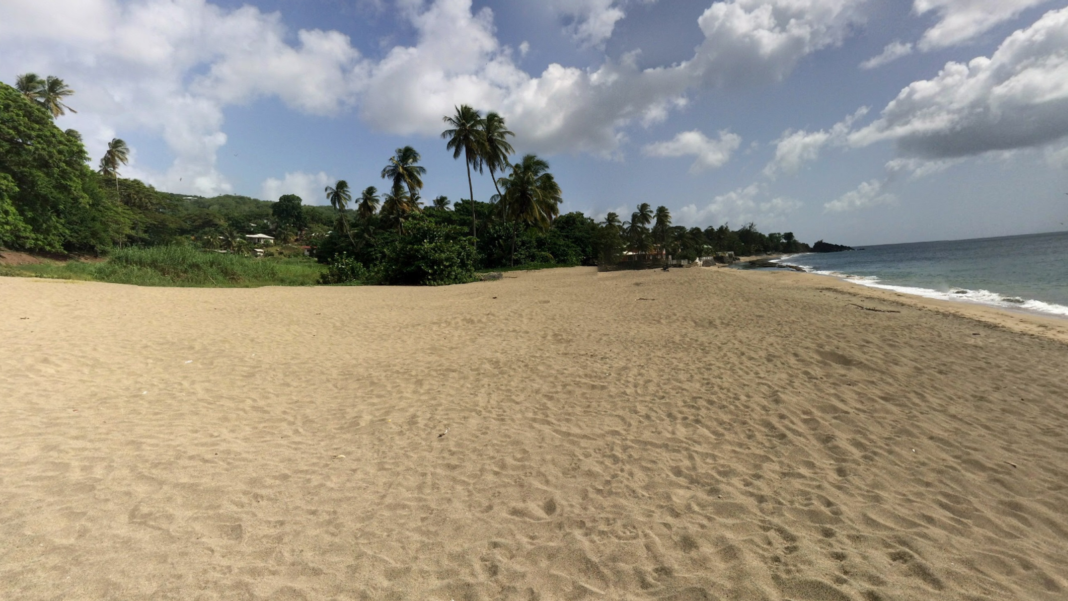A British tourist seriously injured in a shark attack off the coast of Trinidad and Tobago is “aware of what is happening and can communicate”, according to his wife.
Peter Smith, 64, was attacked 10 metres off the shore near the Starfish Hotel in Courland Bay on the north coast of Tobago on Friday morning.
He remains in intensive care at a hospital on the island, having suffered damage to his left arm and leg, puncture wounds to the abdomen, and injuries to his right hand, according to his wife, Jo Smith.
She told the BBC in a statement: “As of 9am local time today (Sunday), Peter is aware of what is happening and is able to communicate a little, although he is still under strong medication.”
She also thanked “all those that assisted at the scene, and especially the two friends that remained in the water to battle the shark”.
Courland Bay in Tobago
The couple, from Berkhamsted, Hertfordshire, had been holidaying on the Caribbean island with friends and were due to fly home on the same day the attack took place.
The shark appeared to be a bull shark, around 8-10ft long and 2ft wide, according to the Tobago House of Assembly.

A bull shark pictured in Fiji in 2022. Pic: Ric Tapia/AP

Keep up with all the latest news from the UK and around the world by following Sky News
Read more from Sky News:
How scared should we be of sharks?
Beauty ingredient linked to shark extinction risk
The attack prompted the government to temporarily close seven beaches and a marine park along the northwestern coast of the Caribbean island.
Orion Jakerov, watersports manager at the Starfish Resort, witnessed the incident and Mr Smith was about waist-deep in the water when the shark attacked.
“The other people in the water were physically trying to fight the shark off while it attacked,” he said.
Shark attacks in Tobago a rarity
Many experts consider bull sharks to be among the most dangerous in the world.
Historically, they are one of the three species most likely to attack humans, alongside great whites and tiger sharks, according to the National Geographic.
But their presence is rarely felt in Tobago.
In fact, there have only been two other shark attacks there in the past 20 years, data from Florida Museum’s International Shark Attack File shows.
One of those – a non-fatal attack in 2004 – was a bull shark.
They are far more frequent off the eastern and southern US coasts and in the central Caribbean.
Bull sharks get their name from their short, blunt snout, as well as their aggressive disposition and a tendency to head-butt their prey before attacking, the National Geographic says.
The Foreign Office said it was supporting the family.
Last year, there were 69 unprovoked shark attacks and 22 provoked bites worldwide, along with 14 fatalities, according to the Florida-based International Shark Attack File.







